Introduction
In the world of innovation and technological advancements, Germany has consistently been at the forefront. This European powerhouse has earned a stellar reputation for its commitment to research, development, and innovation across various sectors. In this article, we will delve into Germany’s remarkable contribution to global technological advancements, highlighting its key strengths, initiatives, and the impact it has on the global tech landscape.
In the world of innovation and technological advancements, Germany has consistently been at the forefront. This European powerhouse has earned a stellar reputation for its commitment to research, development, and innovation across various sectors. In this article, we will delve into Germany’s remarkable contribution to global technological advancements, highlighting its key strengths, initiatives, and the impact it has on the global tech landscape.
Germany’s commitment to technological progress is deeply embedded in its culture and history. Its tradition of precision engineering, dating back to the days of renowned inventors like Carl Benz and Robert Bosch, has evolved into a modern ethos of innovation. German companies, both large and small, have consistently pushed the boundaries of technology, producing world-class machinery, automobiles, electronics, and more.
One of Germany’s notable strengths is its robust education system, which places a strong emphasis on STEM (Science, Technology, Engineering, and Mathematics) disciplines. The country is home to some of the world’s top universities and research institutions, nurturing talent and fostering groundbreaking research. This focus on education and skills development ensures a steady stream of highly qualified professionals and innovators.
Moreover, Germany has been a driving force behind Industry 4.0, a revolution in manufacturing and automation. The concept of interconnected, smart factories has reshaped industrial processes worldwide, and German companies have played a pivotal role in shaping this transformation. Their expertise in automation, artificial intelligence, and the Internet of Things (IoT) has set new standards for efficiency and productivity.
Germany’s commitment to sustainability and green technology is another noteworthy aspect of its technological leadership. The country has invested heavily in renewable energy sources, setting ambitious goals for reducing carbon emissions. This not only addresses environmental concerns but also positions Germany as a hub for clean energy technology and solutions, contributing to the global fight against climate change.
In the digital realm, Germany is known for its strong data protection and privacy regulations. This approach has helped build trust among consumers and businesses alike, making Germany a safe haven for digital innovation and fostering the growth of cybersecurity expertise.
In summary, Germany’s influence on global technological advancements is substantial and multifaceted. Its dedication to innovation, its strong educational foundation, its leadership in Industry 4.0, and its commitment to sustainability and data privacy collectively shape the global tech landscape. As we explore Germany’s journey in this article, we’ll gain valuable insights into the driving forces behind its continued technological excellence and its impact on shaping the future of innovation worldwide.
Explore this link for a more extensive examination of the topic: Innovations in Health Care—A Conceptual Framework – PMC
Germany’s impressive track record in technological advancements can be attributed to its robust innovation ecosystem. Several key factors contribute to its success:
Germany’s impressive track record in technological advancements can be attributed to its robust innovation ecosystem. Several key factors contribute to its success:
Strong Research and Development (R&D) Culture: Germany has a rich tradition of investing in research and development. Its universities, research institutions, and private companies consistently allocate resources to pursue cutting-edge technologies. This commitment to R&D fosters an environment where innovation thrives.
Collaboration Between Academia and Industry: The close collaboration between academic institutions and industry is a hallmark of Germany’s innovation landscape. Companies frequently partner with universities and research centers to develop and implement innovative solutions. This synergy ensures that research findings translate into practical applications.
Skilled Workforce: Germany boasts a highly skilled and well-educated workforce. Its vocational training programs and emphasis on technical education produce a steady stream of talent equipped to drive technological innovation. This pool of skilled professionals is crucial for companies looking to develop and implement advanced technologies.
Strong Intellectual Property Protection: Germany’s robust legal framework for intellectual property protection encourages companies to invest in innovation with confidence. This protection incentivizes businesses to develop new technologies, knowing that their intellectual property rights will be safeguarded.
Government Support: The German government plays a significant role in fostering innovation. It provides grants, incentives, and tax breaks to support R&D activities and innovation-driven enterprises. This support reduces the financial risks associated with research and development, making it more attractive for businesses.
Innovation Clusters: Germany features numerous innovation clusters and technology parks that bring together companies, startups, research institutions, and investors. These clusters encourage knowledge sharing, collaboration, and the cross-pollination of ideas, leading to accelerated innovation.
Global Market Access: Germany’s central location in Europe grants companies easy access to a vast European market. This proximity encourages companies to innovate and develop products and services tailored to diverse European consumer preferences.
Environmental and Social Responsibility: There’s a growing emphasis on sustainable and socially responsible innovation in Germany. Businesses are increasingly integrating environmentally friendly practices into their processes, reflecting the country’s commitment to green technologies and ethical innovation.
Startup Culture: Germany has a thriving startup culture, particularly in cities like Berlin and Munich. Startups bring fresh ideas and disruptive technologies to the market, injecting dynamism into the innovation ecosystem.
International Collaboration: Germany actively engages in international collaborations, participating in joint research projects and initiatives with global partners. This open approach to innovation allows for the exchange of ideas and expertise on a global scale.
In summary, Germany’s success in technological advancements is underpinned by a combination of factors, including a commitment to research and development, a collaborative environment, a skilled workforce, supportive government policies, and a culture of innovation. These elements work in concert to create an innovation ecosystem that continues to drive technological progress and economic growth.
To delve further into this matter, we encourage you to check out the additional resources provided here: The bumpy road ahead in China for Germany’s carmakers | Merics
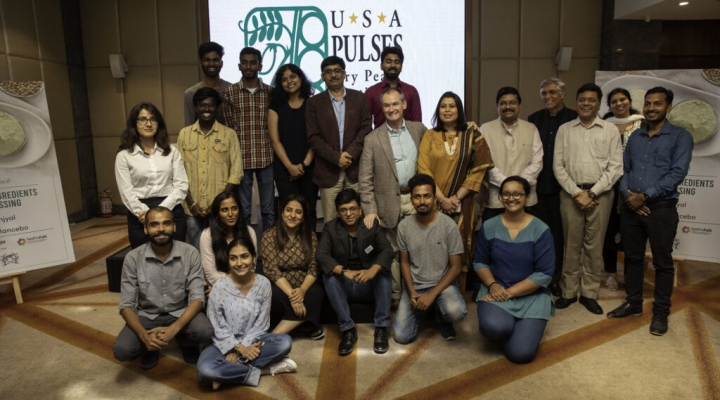
Germany is home to world-class universities and research institutions. It consistently invests a substantial portion of its GDP in R&D, fostering a culture of innovation. The country’s dedication to academic research has resulted in groundbreaking discoveries across various disciplines.
Germany’s commitment to education, research, and innovation has positioned it as a global leader in academia and scientific advancement. With world-class universities and research institutions scattered across the country, Germany has not only maintained its reputation for academic excellence but has also significantly contributed to the progress of human knowledge in various fields.
One remarkable aspect of Germany’s educational landscape is its accessibility. The country offers tuition-free or low-cost education at public universities for both domestic and international students, making high-quality education attainable for a broad range of individuals. This inclusivity promotes diversity and the exchange of ideas, enriching the academic environment and fostering a global perspective.
Germany’s substantial investment in research and development (R&D) is a testament to its dedication to innovation. The country consistently allocates a significant portion of its GDP to R&D, which in turn fuels groundbreaking discoveries and technological advancements. This investment not only benefits Germany but also contributes to global progress. German researchers collaborate with their international counterparts on various projects, facilitating the flow of knowledge and expertise across borders.
The culture of innovation in Germany extends beyond traditional academic disciplines. The country has made significant strides in technology, engineering, healthcare, and environmental science. For example, Germany is at the forefront of renewable energy research and has made substantial investments in green technologies, which have a far-reaching impact on global efforts to combat climate change.
Moreover, Germany’s dedication to academic research has translated into practical applications and innovations that benefit society at large. From life-saving medical advancements and pioneering engineering solutions to advancements in artificial intelligence and sustainable agriculture, German research contributes to improving the quality of life for people around the world.
The strong ties between academia and industry in Germany have also played a pivotal role in fostering innovation. Collaborations between universities, research institutions, and corporations have led to the development of cutting-edge technologies and the commercialization of research findings. This synergy between academia and industry has not only boosted Germany’s economy but has also positioned it as a hub for innovation and entrepreneurship.
Germany’s contributions to science and research are not limited to its own borders. Its researchers and institutions actively participate in international collaborations and contribute to global scientific endeavors. The country’s support for initiatives like the European Research Area and international research projects demonstrates its commitment to addressing global challenges and sharing knowledge for the greater good.
In conclusion, Germany’s world-class universities, substantial investment in R&D, and culture of innovation have established it as a prominent player in the global academic and scientific community. The country’s dedication to education and research has led to groundbreaking discoveries, technological advancements, and practical applications that benefit humanity as a whole. As Germany continues to nurture its culture of innovation, its contributions to various fields will undoubtedly shape the future of our increasingly interconnected world.
You can also read more about this here: Education Innovation and Research – Innovating Education and …

The Mittelstand comprises a vast network of small and medium-sized enterprises that form the backbone of Germany’s economy. These innovative and often family-owned businesses are agile and play a pivotal role in driving technological advancements. They are known for their specialization and niche expertise.
The Mittelstand comprises a vast network of small and medium-sized enterprises that form the backbone of Germany’s economy. These innovative and often family-owned businesses are agile and play a pivotal role in driving technological advancements. They are known for their specialization and niche expertise, which not only contribute significantly to the country’s economic prosperity but also hold valuable lessons for businesses worldwide.
One remarkable aspect of the Mittelstand is its resilience and ability to adapt to changing market dynamics. These companies are not only well-established but also remarkably flexible, allowing them to weather economic storms and adjust to new challenges. This adaptability is a testament to their commitment to long-term sustainability and their willingness to embrace innovation as a means of staying competitive.
Furthermore, the Mittelstand’s emphasis on niche expertise has far-reaching implications. By focusing on specific industries or technologies, these businesses often become world leaders in their respective fields. This specialization not only boosts Germany’s exports but also fosters a culture of innovation. When companies become experts in their niche, they are more likely to push the boundaries of what is possible, leading to breakthroughs that benefit not only their industries but also society as a whole.
The Mittelstand also plays a critical role in shaping the country’s employment landscape. They provide millions of jobs across Germany, contributing to low unemployment rates and economic stability. Moreover, their family-owned nature often means a deep commitment to their employees and communities, fostering a sense of responsibility that extends beyond the balance sheet.
Looking beyond Germany’s borders, the Mittelstand serves as a model for other countries seeking to strengthen their own small and medium-sized enterprise sectors. The focus on innovation, specialization, and adaptability offers valuable insights for businesses worldwide striving to thrive in an ever-evolving global economy.
In conclusion, the Mittelstand’s significance goes beyond Germany’s economic success; it embodies a dynamic and resilient approach to business that resonates globally. These businesses prove that specialization, adaptability, and a strong commitment to innovation can serve as a blueprint for success, demonstrating that even smaller enterprises can have a profound impact on a nation’s economic landscape and technological advancement.
Don’t stop here; you can continue your exploration by following this link for more details: The digital transformation of the German Mittelstands | Global law …
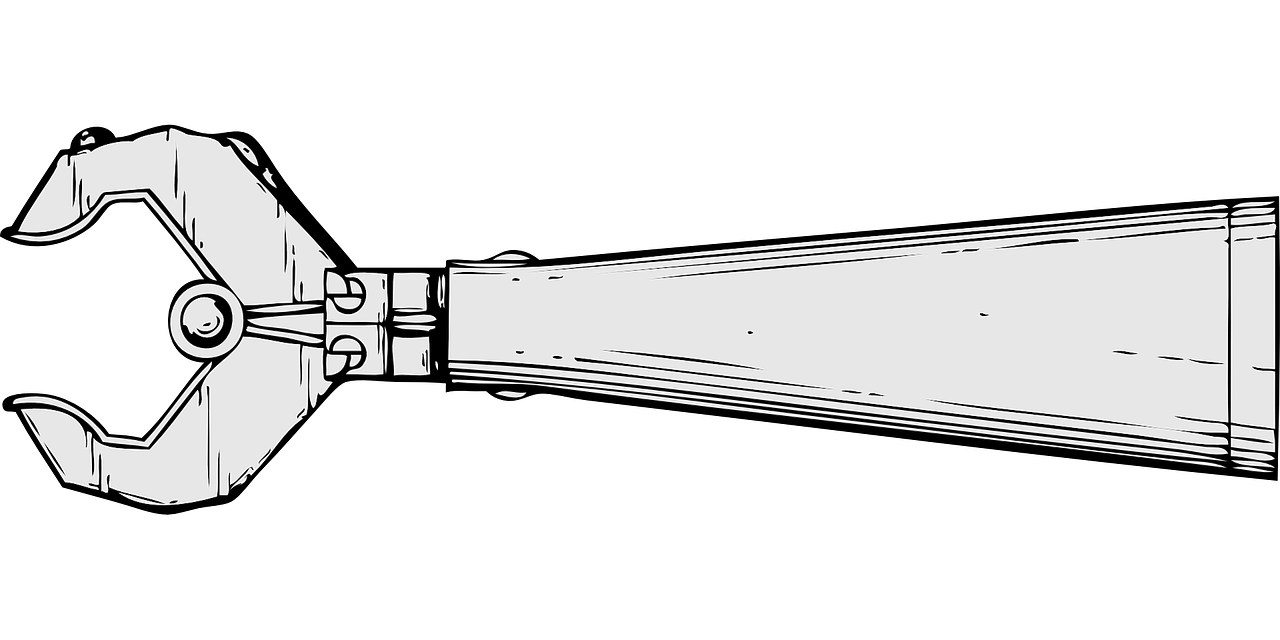
Germany excels in bridging the gap between academic research and industry application. Collaborative efforts between universities and businesses have led to the development of cutting-edge technologies and products. This synergy ensures that theoretical knowledge is translated into practical solutions.
Germany’s prowess in bridging the gap between academic research and industry application stands as a testament to its commitment to innovation and efficiency. This symbiotic relationship between universities and businesses has yielded a multitude of benefits that ripple through various sectors:
Innovative Research Ecosystem: Germany boasts a vibrant research ecosystem where universities, research institutions, and businesses collaborate seamlessly. This ecosystem fosters an environment conducive to groundbreaking discoveries and practical applications. Researchers are motivated by real-world challenges, and businesses gain access to the latest knowledge and expertise.
Advanced Technology Development: Collaborative efforts have propelled Germany to the forefront of technology development. Industries like automotive, pharmaceuticals, renewable energy, and machinery have reaped the rewards of this synergy. The result is the creation of cutting-edge technologies that enhance global competitiveness.
Skilled Workforce: The alignment between academia and industry has a profound impact on the workforce. Graduates are well-prepared to meet industry demands, equipped with both theoretical knowledge and practical skills. This ensures a steady supply of highly skilled professionals who can contribute immediately to the workforce.
Market-Leading Products: Germany’s ability to translate theoretical knowledge into practical solutions has led to the production of market-leading products. From precision engineering to high-tech machinery, these products have a reputation for quality and reliability, bolstering Germany’s export capabilities.
Economic Growth: The fusion of academic research and industrial application significantly contributes to Germany’s economic growth. It drives investments, creates jobs, and fuels entrepreneurship. This economic vitality extends beyond national borders, positively impacting the global economy.
Global Collaboration: Germany’s collaborative model extends internationally, with partnerships and research collaborations spanning the globe. This interconnectedness fosters the exchange of ideas, expertise, and innovations, contributing to global progress in various fields.
Sustainability Solutions: In the context of environmental challenges, this collaborative approach has yielded sustainable solutions. Germany is a pioneer in renewable energy technology, energy-efficient manufacturing, and eco-friendly transportation, thanks to the fusion of academic insights and industry know-how.
Policy Influence: Germany’s success in bridging the academia-industry gap has influenced policy-making at both national and European levels. It has set a precedent for investing in research and development, education, and innovation as vital components of economic growth.
Cultural Attitudes: This synergy has also shaped the cultural attitudes towards education and business in Germany. The value placed on practical experience and innovation has become deeply ingrained in the nation’s ethos, fostering a culture of lifelong learning and adaptability.
In essence, Germany’s ability to translate academic research into practical applications is a driving force behind its economic prosperity and global influence. It demonstrates the remarkable outcomes that can emerge when academia and industry work in harmony, not only advancing technology but also addressing complex challenges and driving societal progress.
Should you desire more in-depth information, it’s available for your perusal on this page: Intel Labs Partnerships – Driving Research Through Collaboration
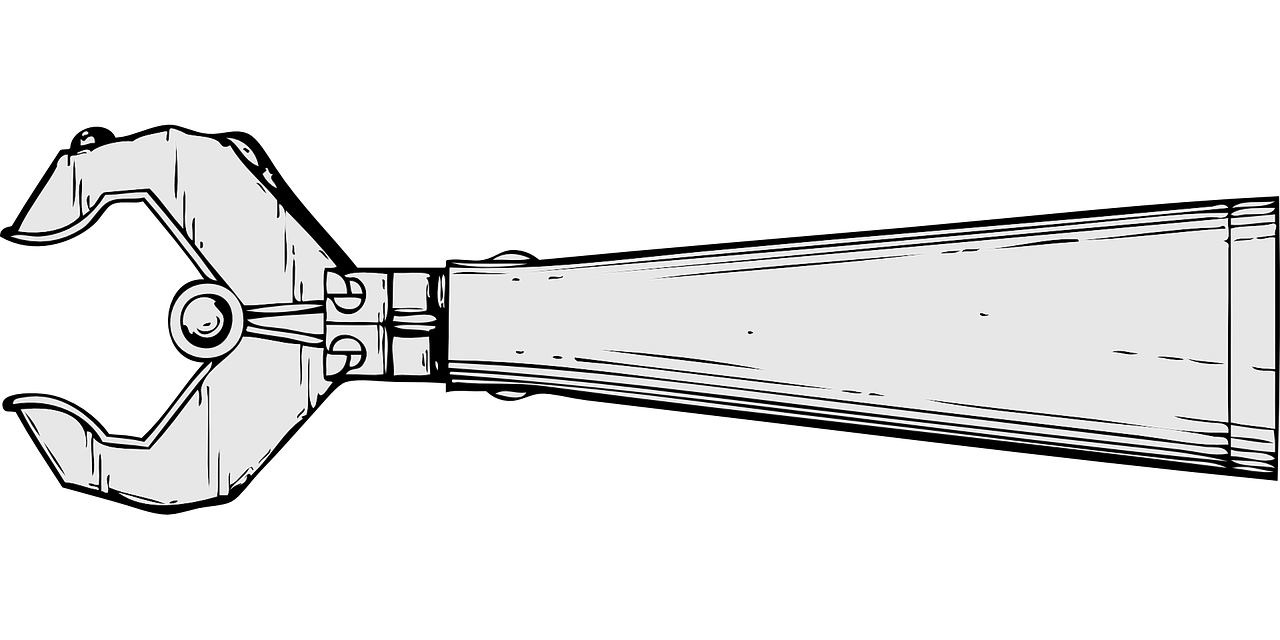
The German government provides substantial financial incentives and grants to encourage research and innovation. Initiatives like the High-Tech Strategy 2025 and Industry 4.0 are prime examples of government-led efforts to boost innovation.
The German government’s commitment to fostering research and innovation goes beyond mere rhetoric. It is evident in the substantial financial incentives and grants that are allocated to support these endeavors. These investments are crucial for maintaining Germany’s competitive edge on the global stage and ensuring its continued leadership in technological advancements.
One standout initiative is the “High-Tech Strategy 2025.” This forward-looking program serves as a comprehensive roadmap, outlining the government’s vision for technological progress over the next several years. It focuses on key areas of innovation, such as digitalization, sustainable technologies, and healthcare advancements. By providing targeted funding and resources to these sectors, the government aims to position Germany as a frontrunner in emerging fields.
“Industry 4.0” is another hallmark initiative that exemplifies Germany’s dedication to innovation. Often referred to as the Fourth Industrial Revolution, Industry 4.0 revolves around the integration of digital technologies, data analytics, and automation in manufacturing processes. The government actively supports companies in adopting these transformative technologies, ensuring that Germany remains at the forefront of industrial innovation. This not only enhances the competitiveness of German industries but also sets a global standard for modern manufacturing practices.
Moreover, these government-led efforts serve as a catalyst for collaboration between the public and private sectors. The synergy between academia, research institutions, and businesses is a cornerstone of Germany’s success in innovation. By providing incentives and a clear vision for the future, the government encourages these stakeholders to work together on cutting-edge projects. This collaborative approach accelerates the development and implementation of innovative solutions, benefitting both the domestic and international communities.
In conclusion, the German government’s commitment to research and innovation through initiatives like the “High-Tech Strategy 2025” and “Industry 4.0” underscores its proactive role in shaping the country’s technological landscape. These programs not only provide financial support but also facilitate collaboration, driving advancements that have a lasting impact on various industries and global technological progress. As Germany continues to invest in innovation, it reinforces its position as a global leader in the field, contributing to a brighter and more technologically advanced future for all.
Don’t stop here; you can continue your exploration by following this link for more details: Globalization Helps Spread Knowledge and Technology Across …

Germany’s contribution to global technological advancements is multifaceted, covering various sectors:
Germany’s contribution to global technological advancements is multifaceted, covering various sectors, and its impact resonates far beyond its borders. In the automotive industry, German engineering has set the gold standard, emphasizing precision, safety, and sustainability. The nation’s commitment to renewable energy and green technologies has spurred innovation in the clean energy sector, influencing global efforts to combat climate change.
In the field of healthcare, German pharmaceutical companies are renowned for their groundbreaking research and development, producing life-saving medications and medical devices that benefit people worldwide. The country’s strong emphasis on education and research has also propelled advancements in fields like artificial intelligence, robotics, and biotechnology, bolstering global progress in these domains.
Germany’s expertise in manufacturing, particularly in machinery and automation, has revolutionized industrial processes, increasing efficiency and productivity on a global scale. Furthermore, its commitment to quality and reliability in manufacturing has cemented its reputation as a preferred partner in supply chains worldwide.
Moreover, the nation’s robust startup ecosystem and investment in innovation hubs have nurtured a thriving tech sector, with Berlin emerging as a European tech hub. This ecosystem fosters entrepreneurial spirit, encouraging the development of cutting-edge technologies, software solutions, and digital platforms that resonate with a global audience.
In essence, Germany’s multifaceted contributions to technological progress span numerous sectors, reflecting a commitment to excellence, sustainability, and innovation that continues to shape the world’s technological landscape.
Looking for more insights? You’ll find them right here in our extended coverage: Global Innovation Index 2022: What is the future of innovation-driven …
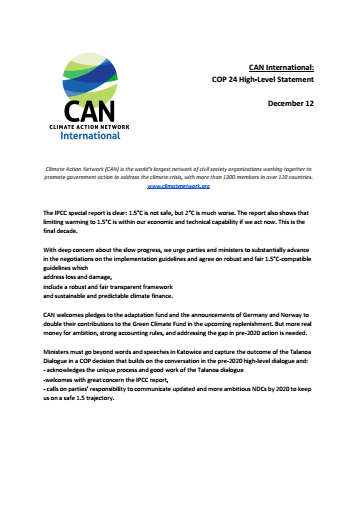
Germany is renowned for its automotive industry, with companies like Volkswagen, BMW, and Mercedes-Benz leading the way in electric and autonomous vehicle development. The country’s engineering expertise extends to manufacturing technologies and industrial automation.
Germany’s reputation as an automotive powerhouse is not merely a result of historical achievements; it’s a dynamic narrative that continues to evolve. With companies like Volkswagen, BMW, and Mercedes-Benz at the forefront, Germany has not just embraced but has become a trailblazer in the electric and autonomous vehicle revolution. These companies are pioneering the way forward, crafting cutting-edge technologies that redefine the future of mobility.
Electric vehicles (EVs) represent a significant facet of Germany’s automotive transformation. The nation has recognized the urgent need to address environmental concerns and reduce carbon emissions. As a result, German automakers are investing heavily in EV research and development, striving to create vehicles that combine sustainability with high performance. This commitment to electric mobility has not only positioned Germany as a leader in the global EV market but also as a driving force behind the transition to cleaner transportation worldwide.
Moreover, Germany’s expertise in autonomous vehicle development is making waves in the automotive industry. Through innovative research and development efforts, German automakers are pushing the boundaries of self-driving technology. Their dedication to safety, precision, and efficiency is shaping the future of transportation. The integration of autonomous features into vehicles promises to enhance road safety, reduce traffic congestion, and revolutionize the way we perceive and interact with automobiles.
Beyond automotive innovation, Germany’s engineering prowess extends to manufacturing technologies and industrial automation. The country’s dedication to precision and efficiency has elevated its manufacturing sector to a global standard-bearer. German companies employ advanced automation solutions that optimize production processes, reduce waste, and ensure consistent product quality. This not only benefits the automotive industry but also various other sectors, making Germany a hub for state-of-the-art industrial practices.
As Germany continues to pave the way in electric and autonomous vehicle development and maintain its engineering excellence in manufacturing technologies, it reinforces its position as a global leader in innovation. The lessons learned from Germany’s automotive industry reach far beyond its borders, inspiring and influencing the entire world. This ongoing commitment to pushing the boundaries of technology is not only transforming the way we drive but also shaping the future of transportation and manufacturing on a global scale.
Explore this link for a more extensive examination of the topic: Engineering: issues, challenges and opportunities for development …

Germany is a pioneer in sustainable technologies. Its commitment to renewable energy has made it a leader in solar and wind power generation. The “Energiewende” (energy transition) is a prime example of Germany’s dedication to reducing carbon emissions.
Germany’s pioneering spirit in sustainable technologies is not confined to its advancements in renewable energy alone. Beyond its leadership in solar and wind power generation, Germany has also made significant strides in various sectors embracing sustainability. The “Energiewende” (energy transition) is a prime example of Germany’s dedication to reducing carbon emissions, but it is part of a larger, holistic approach to sustainability.
One notable aspect is Germany’s emphasis on energy efficiency. Its industries and households are continually adopting innovative technologies and practices to minimize energy consumption. From state-of-the-art insulation in buildings to energy-efficient manufacturing processes, these efforts reflect a commitment to sustainability that goes beyond the production of clean energy.
Moreover, Germany’s investment in sustainable transportation has been transformative. Its renowned automotive industry is transitioning toward electric and hybrid vehicles, setting the stage for a greener future in mobility. This shift not only reduces greenhouse gas emissions but also drives innovation and economic growth.
In agriculture, Germany’s dedication to organic farming and sustainable land management practices promotes biodiversity and reduces the ecological footprint of food production. This approach aligns with global efforts to ensure food security and environmental protection.
Furthermore, Germany actively supports research and development in green technologies, fostering a culture of innovation and entrepreneurship. This commitment extends to international collaborations and partnerships aimed at addressing global environmental challenges.
In essence, Germany’s leadership in sustainable technologies encompasses a broad spectrum of initiatives, from renewable energy to energy efficiency, sustainable transportation, agriculture, research and development, and international cooperation. As the world confronts pressing environmental issues, Germany’s multifaceted approach to sustainability serves as an inspiration and model for nations striving to create a more sustainable and eco-friendly future.
For additional details, consider exploring the related content available here For Germany, climate technologies are the best strategy for rapid …

Germany’s pharmaceutical and biotechnology sectors are known for their research and development of innovative medicines and medical devices. The country has played a critical role in advancing healthcare worldwide.
Germany’s pharmaceutical and biotechnology sectors stand as beacons of innovation and excellence in the global healthcare landscape. These industries have made profound contributions to medical research and the development of life-saving treatments and cutting-edge medical devices.
One of the defining features of Germany’s pharmaceutical and biotech sectors is their unwavering commitment to research and development (R&D). German companies invest heavily in pioneering research, pushing the boundaries of medical science and technology. This dedication has led to breakthroughs in various fields, including oncology, immunology, and neurology, with the development of novel drugs and therapies that have positively impacted patients’ lives worldwide.
The country’s emphasis on collaboration and interdisciplinary approaches has fostered an environment conducive to innovation. German universities, research institutions, and private enterprises often collaborate on groundbreaking projects, ensuring that the latest scientific knowledge translates into practical solutions for healthcare challenges. This collaborative spirit has also attracted top talent from around the world, further fueling the sector’s growth and expertise.
Moreover, Germany’s commitment to stringent quality standards and regulatory compliance has bolstered its reputation as a global leader in healthcare. Products manufactured in Germany are synonymous with quality and safety, making them highly sought after by healthcare providers and patients alike. This commitment to quality extends to the rigorous testing and validation processes that ensure the safety and efficacy of pharmaceuticals and medical devices.
Germany’s role in shaping European healthcare policies is equally significant. The country actively contributes to discussions on regulations, healthcare access, and patient-centric approaches within the European Union. This influence has helped shape policies that promote patient well-being and stimulate innovation across the continent.
In conclusion, Germany’s pharmaceutical and biotechnology sectors are true trailblazers in the global healthcare arena. Their commitment to R&D, collaborative spirit, adherence to quality standards, and active role in shaping healthcare policies contribute significantly to advancing healthcare worldwide. With ongoing investments in research and innovation, Germany continues to lead the way in improving the health and well-being of people everywhere.
Don’t stop here; you can continue your exploration by following this link for more details: Pfizer: One of the world’s premier biopharmaceutical companies

Germany is home to thriving tech hubs, such as Berlin and Munich, where startups and established tech giants work on cutting-edge software, artificial intelligence, and cybersecurity solutions.
Germany’s dynamic tech landscape goes beyond just Berlin and Munich, although these cities are indeed prominent tech hubs. Across the country, from Frankfurt’s financial district to the innovative clusters in Hamburg and Stuttgart, Germany hosts a thriving ecosystem of tech innovation.
In Berlin, the vibrant startup scene is at the heart of the nation’s tech revolution. Countless incubators, accelerators, and co-working spaces foster a culture of entrepreneurship, where creative minds converge to develop groundbreaking solutions. From fintech to health tech, Berlin’s diverse tech scene covers a broad spectrum of industries, ensuring that innovation knows no bounds.
Meanwhile, Munich’s tech prowess extends to its deep-seated tradition of engineering excellence. The city is not only a global leader in the automotive sector but also a burgeoning center for cutting-edge research in fields like artificial intelligence, robotics, and advanced manufacturing. Munich’s collaboration between research institutions, industry leaders, and startups serves as a model for other regions aspiring to technological excellence.
Beyond these prominent hubs, smaller cities are also carving out niches in the tech world. Hamburg, with its focus on media and digital marketing, and Stuttgart, known for its expertise in industrial automation and engineering, demonstrate that innovation is not confined to Germany’s largest urban centers.
Moreover, Germany’s commitment to cybersecurity is unwavering. With the increasing importance of safeguarding digital assets, German companies and research institutions are pioneering advancements in cybersecurity solutions. This focus on cybersecurity aligns with Germany’s reputation for precision and reliability, making it a trusted partner for organizations worldwide seeking robust digital defense.
In sum, Germany’s tech ecosystem is a tapestry of innovation, with each region contributing its unique strengths to the nation’s tech landscape. Whether it’s startups in Berlin, research in Munich, or specialized expertise elsewhere, Germany’s tech prowess continues to shape the digital future, ensuring its place as a global tech powerhouse.
Should you desire more in-depth information, it’s available for your perusal on this page: Global Innovation Index 2022: What is the future of innovation-driven …

Germany’s contribution to global technological advancements extends far beyond its borders. Its innovations have a profound impact on various industries and economies worldwide:
Germany’s contribution to global technological advancements extends far beyond its borders, creating a ripple effect that reverberates across numerous industries and economies worldwide. The nation’s steadfast commitment to innovation and engineering excellence has given rise to a host of transformative developments that have left an indelible mark on the global stage.
In the realm of manufacturing, Germany’s precision engineering and quality standards are legendary. The country’s automotive industry, for example, is renowned for its cutting-edge technologies, sustainable practices, and commitment to safety. German automakers consistently set industry benchmarks, influencing vehicle design, safety features, and sustainability initiatives worldwide. Moreover, innovations in machinery and industrial equipment have not only boosted efficiency and productivity but have also catalyzed advancements in manufacturing hubs worldwide.
The influence of German innovation extends well beyond manufacturing. In the field of renewable energy, Germany’s commitment to sustainability has driven the adoption of solar and wind power technologies on a global scale. Its pioneering efforts in transitioning to a low-carbon economy have inspired nations to invest in clean energy sources, contributing to a more sustainable future.
The impact of German technological advancements is also felt in healthcare and pharmaceuticals. The country’s pharmaceutical companies are leaders in research and development, producing groundbreaking medications and therapies. These innovations have improved the quality of healthcare worldwide and have been instrumental in addressing global health challenges.
Furthermore, Germany’s role in shaping information technology and artificial intelligence cannot be understated. The nation’s software and tech firms have made significant contributions to the development of cutting-edge digital solutions, influencing the way we work, communicate, and access information on a global scale. German expertise in AI and cybersecurity has also played a pivotal role in safeguarding digital infrastructure.
Germany’s commitment to research and development, along with its robust education system, fosters a continuous cycle of innovation. Its universities and research institutions are at the forefront of scientific discovery, nurturing talent that drives technological advancements not only within Germany but also throughout the global scientific community.
In conclusion, Germany’s impact on global technological advancements transcends borders and industries. Its innovations resonate across the automotive, manufacturing, renewable energy, healthcare, and information technology sectors, among others. As a global leader in innovation, Germany continues to shape the future of technology, inspiring progress and innovation worldwide. Its contributions serve as a testament to the power of sustained investment in research, development, and a culture of excellence.
For a comprehensive look at this subject, we invite you to read more on this dedicated page: GlobalTrends_2040.pdf

Germany’s manufacturing prowess and technological innovations play a pivotal role in global supply chains, ensuring the efficiency and reliability of products and services across industries.
Germany’s manufacturing prowess and technological innovations play a pivotal role in global supply chains, ensuring the efficiency and reliability of products and services across industries. This enduring influence extends beyond the borders of Germany, impacting the world in various profound ways.
First and foremost, Germany’s reputation for engineering excellence is synonymous with quality and precision. German-made products, ranging from automobiles and machinery to electronics and pharmaceuticals, are trusted worldwide for their superior craftsmanship. This reputation not only drives demand but also sets a high standard for other manufacturers to follow. As a result, Germany’s commitment to quality acts as a benchmark that elevates the overall standards of global manufacturing.
Furthermore, the country’s dedication to innovation has given rise to groundbreaking technologies that transcend borders. German innovations in automation, robotics, and industrial processes have redefined how businesses operate on a global scale. These advancements enhance productivity, reduce costs, and ensure the delivery of high-quality products, making Germany an indispensable partner in global supply chains.
Germany’s role as an exporter is also vital in maintaining the stability and interconnectedness of the global economy. The country’s exports contribute significantly to its GDP, and its trade relationships span the globe. As a leading exporting nation, Germany plays a crucial role in the balance of international trade, promoting economic growth not only within Europe but also in countries near and far.
Moreover, Germany’s commitment to sustainability and green technology has a ripple effect throughout global supply chains. The country’s emphasis on eco-friendly practices, energy efficiency, and responsible resource management sets an example for others to follow. This commitment to sustainability is increasingly important in a world where environmental concerns and climate change mitigation are paramount.
In times of crisis, such as the COVID-19 pandemic, Germany’s manufacturing capabilities also shine through. The country’s ability to swiftly adapt production lines to manufacture critical medical supplies, like ventilators and personal protective equipment, demonstrates its resilience and readiness to support global needs during emergencies.
In conclusion, Germany’s manufacturing prowess and technological innovations serve as a cornerstone of global supply chains. They not only ensure the quality and reliability of products but also influence industry standards, promote economic stability, and champion sustainability. As Germany continues to lead in these areas, its impact on the interconnected world of trade and industry remains profound and indispensable.
You can also read more about this here: Sustainable Global Supply Chains Report 2022

Germany’s commitment to sustainability and green technologies sets an example for other nations, encouraging the adoption of eco-friendly practices on a global scale.
Germany’s commitment to sustainability and green technologies sets an example for other nations, encouraging the adoption of eco-friendly practices on a global scale. This leadership role in environmental stewardship is multi-faceted and serves as a beacon for countries and industries seeking a more sustainable future.
Renewable Energy Transition: One of Germany’s most notable achievements is its Energiewende, or energy transition, which seeks to shift from fossil fuels to renewable energy sources. Germany has made substantial investments in wind, solar, and biomass energy, significantly reducing its carbon emissions and demonstrating the feasibility of a low-carbon energy future. Other nations have taken inspiration from Germany’s commitment to reducing their own carbon footprints.
Green Infrastructure: Germany’s investment in green infrastructure, such as efficient public transportation, bike-friendly cities, and energy-efficient buildings, showcases its dedication to sustainable urban planning. The success of German cities in reducing pollution and promoting green living inspires urban planners worldwide.
Circular Economy Initiatives: Germany’s approach to waste management and recycling is exemplary. The country has implemented effective recycling programs and policies to reduce waste and promote the circular economy. These practices are increasingly being adopted and adapted by countries looking to minimize waste and conserve resources.
Environmental Regulations: Germany’s stringent environmental regulations and standards have encouraged global businesses to adopt eco-friendly practices to meet German market demands. This ripple effect has led to a broader global shift toward more sustainable production processes.
Innovation in Clean Technologies: Germany is a leader in clean technology innovation, particularly in the automotive industry with its development of electric vehicles and sustainable transportation solutions. This innovation has catalyzed global competition and accelerated the development and adoption of green technologies worldwide.
International Partnerships: Germany actively participates in international agreements and partnerships focused on climate change and environmental protection. Its engagement in forums like the United Nations Framework Convention on Climate Change (UNFCCC) underscores its commitment to addressing global environmental challenges cooperatively.
Environmental Education: Germany’s emphasis on environmental education at all levels of the education system has cultivated a generation of environmentally conscious citizens. This education model serves as a model for other nations looking to raise awareness and foster a sense of responsibility toward the environment.
Green Diplomacy: Germany’s diplomacy includes advocating for environmental sustainability in international relations. It uses its economic and political influence to encourage other nations to adopt eco-friendly policies and meet climate targets.
Transparency and Accountability: Germany’s transparent reporting on environmental progress and its willingness to hold itself accountable for its sustainability goals provide a valuable example for other countries seeking to implement effective monitoring and reporting mechanisms.
In summary, Germany’s steadfast commitment to sustainability and green technologies transcends its borders, influencing other nations to follow suit in their pursuit of a more environmentally conscious future. By showcasing the benefits of eco-friendly practices, Germany serves as a global role model in the fight against climate change and the promotion of sustainable development.
To expand your knowledge on this subject, make sure to read on at this location: Research & Development | Covestro AG

Through its export-oriented approach and technological innovations, Germany contributes to economic growth not only within the EU but also globally.
Through its export-oriented approach and technological innovations, Germany serves as a driving force behind not only economic growth within the European Union but also on a global scale. The German economy’s export prowess is underpinned by a combination of factors, including a strong manufacturing sector, a commitment to quality, and a focus on innovation.
Export Excellence: Germany is renowned for its ability to produce high-quality goods, from automobiles and machinery to chemicals and pharmaceuticals. This reputation for excellence has made “Made in Germany” a symbol of quality and reliability worldwide. The country consistently ranks among the world’s top exporters, and its export-oriented businesses have expanded their reach into every corner of the globe.
Technological Innovation: Innovation is at the core of Germany’s economic success. German companies invest heavily in research and development (R&D) to stay at the forefront of technological advancements. This commitment to innovation not only improves product quality but also drives the creation of new products and industries. For instance, the German automotive industry’s push into electric and autonomous vehicles exemplifies this commitment to staying ahead of the curve.
Global Supply Chains: Germany’s export-oriented strategy extends its influence into global supply chains. Many products, from consumer electronics to industrial machinery, rely on components and technology produced in Germany. This interconnectedness means that Germany’s economic health has a ripple effect across various industries and countries, contributing to global economic stability.
Job Creation: Germany’s export-driven economy supports millions of jobs both within the country and abroad. Companies that export goods and services require skilled employees, and this has a positive impact on employment rates not only in Germany but also in partner countries. In this way, Germany’s economic success has a positive spillover effect on global labor markets.
Trade Partnerships: Germany’s economic influence extends through its active participation in international trade agreements and organizations. As one of the world’s largest exporters, Germany plays a crucial role in shaping global trade policies, and its commitment to free and fair trade benefits not only its own economy but also those of its trade partners.
Technology Transfer: Through exportation, Germany shares its technological advancements and expertise with other nations. This technology transfer can catalyze economic growth and industrial development in recipient countries, contributing to the global spread of knowledge and innovation.
Economic Resilience: Germany’s export-oriented economy has proven resilient in the face of economic fluctuations. Its ability to adapt to changing global demand and economic conditions has been a stabilizing force in times of uncertainty, providing a model for other nations seeking to enhance their economic resilience.
In conclusion, Germany’s export-oriented approach, coupled with its commitment to technological innovation, has positioned it as a key driver of economic growth not only within the European Union but also on a global scale. Its influence is felt through interconnected supply chains, job creation, and partnerships, and it contributes to the dissemination of knowledge and innovation around the world. As Germany continues to adapt and innovate, its impact on the global economy is likely to remain significant for years to come.
If you’d like to dive deeper into this subject, there’s more to discover on this page: U.S. and Global Research and Development
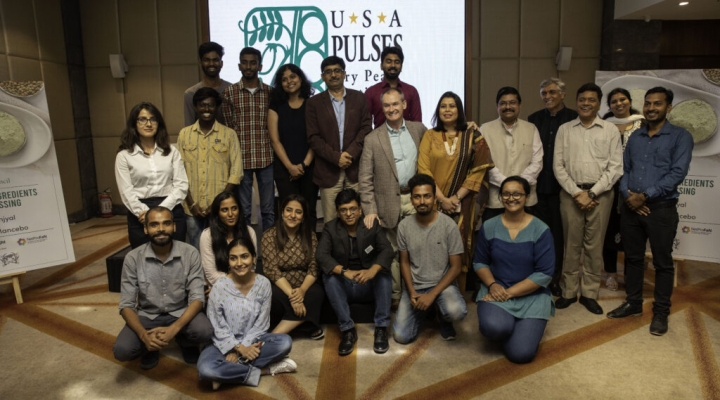
Conclusion
Germany’s dedication to research, innovation, and technological advancements has solidified its position as a global leader in multiple sectors. Its thriving innovation ecosystem, collaboration between academia and industry, and government support have all played crucial roles in shaping its success. As Germany continues to push the boundaries of technological advancements, its contributions to global innovation will remain indispensable.
Germany’s dedication to research, innovation, and technological advancements has solidified its position as a global leader in multiple sectors. Its thriving innovation ecosystem, collaboration between academia and industry, and government support have all played crucial roles in shaping its success. As Germany continues to push the boundaries of technological advancements, its contributions to global innovation will remain indispensable.
One of Germany’s notable strengths lies in its robust research infrastructure. The country boasts world-class universities and research institutions that continually produce cutting-edge knowledge and talent. This intellectual foundation provides a fertile ground for innovation to flourish. Moreover, Germany’s commitment to investing in research and development is evident in its substantial funding for scientific endeavors, further propelling its global competitiveness.
The close collaboration between academia and industry is a hallmark of Germany’s innovation landscape. The synergistic relationship between researchers and businesses fosters an environment where theoretical insights swiftly translate into practical applications. This collaboration is particularly noticeable in sectors like automotive engineering and pharmaceuticals, where research findings directly impact product development and competitiveness. This seamless interaction has not only accelerated technological progress but has also driven economic growth.
Government support has been instrumental in propelling Germany’s technological leadership. The government’s strategic investments in critical sectors, combined with favorable policies and incentives, create a conducive environment for innovation to thrive. Initiatives such as the High-Tech Strategy and Industry 4.0 have propelled Germany to the forefront of global innovation in areas like automation, digitalization, and advanced manufacturing.
As Germany continues to push the boundaries of technological advancements, its contributions to global innovation will extend even further. Emerging fields such as artificial intelligence, renewable energy, and biotechnology are areas where Germany’s expertise is making a significant impact. Its commitment to sustainability and environmental innovation is particularly noteworthy, as it addresses pressing global challenges.
Moreover, Germany’s leadership in standardization and quality assurance ensures that its technological advancements are globally applicable and reliable. This commitment to excellence not only benefits its domestic industries but also elevates global standards, making products safer and more efficient for consumers worldwide.
In conclusion, Germany’s dedication to research, innovation, and technological advancements is a testament to its enduring commitment to progress. Its thriving ecosystem, collaborative spirit, and government support have propelled it to the forefront of global innovation. As it continues to pioneer in emerging fields, Germany’s contributions to global innovation will remain invaluable, influencing industries and improving lives across the globe.
Explore this link for a more extensive examination of the topic: THE IMPACT OF ARTIFICIAL INTELLIGENCE ON THE FUTURE OF …
More links
To expand your knowledge on this subject, make sure to read on at this location: Military Technology in World War I | Articles & Essays | Newspaper …
